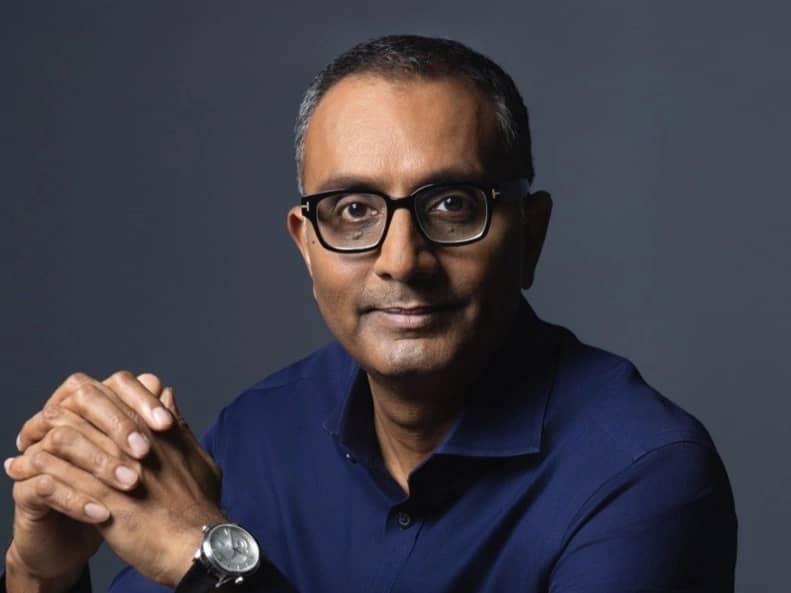Ashok Venkateswaran
Ashok Venkateswaran 是万事达卡的副总裁,担任亚太区(APAC)数字资产和区块链负责人。他负责指导公司在新兴技术(如稳定币、央行数字货币(CBDC)和该地区的代币化资产)方面的战略和产品开发。凭借在金融服务和咨询领域超过 20 年的经验,他经常就数字资产与传统支付生态系统的整合发表演讲。 [1] [2]
教育背景
Venkateswaran 曾在伍德斯托克国际学校接受大学预科教育。后来,他赴美国深造,获得德雷塞尔大学金融学理学学士(B.S.)学位。他在金融领域的学术背景为他的职业生涯奠定了基础,他的职业生涯一直处于金融服务和技术的交叉点。 [3] [4] [16]
职业生涯
Venkateswaran 于 2000 年开始了他的职业生涯,在技术和咨询领域担任了一系列职责不断增加的职位。他最初在 IFrame GmbH 担任项目经理,一直到 2004 年初。然后,他加入 BusinessEdge Solutions 担任客户经理,在那里工作了四年多,专注于 IT 服务和咨询。2009 年,他转到金融市场领域,在跨大西洋证券交易所公司 NYSE Euronext 担任项目经理。在他四年多的任期内,他参与了交易所运营中的技术和业务项目管理,这为他后来从事区块链技术工作奠定了基础。
2013 年底,Venkateswaran 加入安永(Ernst & Young),担任咨询总监,专门负责金融服务机构。他常驻新加坡,领导公司银行业和资本市场领域的客户体验和数字战略业务。他的工作包括为金融机构提供 IT 战略、数据优化和数字化转型方面的咨询,以提高运营效率。在安永工作四年后,他短暂进入区块链初创公司领域,从 2018 年到 2019 年初,担任去中心化数据网络 Bluzelle 的销售和产品开发总监。 [5] [4] [3] [17]
万事达卡
2019 年 2 月,Venkateswaran 加入万事达卡,领导其在亚太地区新成立的数字资产和区块链业务。他的正式头衔在不同的论坛中略有不同,包括亚太区数字资产和区块链负责人、数字资产和区块链 B2B 产品副总裁以及数字资产和稳定币副总裁。在这个高级领导职位上,他负责万事达卡在数字货币和区块链技术方面的战略、客户互动和产品路线图。 [1] [3]
他的工作包括与万事达卡的客户(包括银行、金融机构和金融科技公司)合作,开发和实施使用数字资产的解决方案。这包括稳定币、CBDC、代币化银行存款和代币化现实世界资产(RWA)。他角色的一个关键重点是充当传统金融(TradFi)世界和新兴数字资产生态系统之间的桥梁,确保新的支付解决方案与现有的传统金融基础设施互操作。在他的领导下,万事达卡在该地区参与了多项重要的行业计划,包括香港金融管理局的 e-HKD 试点计划,该计划测试了潜在零售 CBDC 的解决方案。 [2] [6]
对数字资产和 CBDC 的看法
Venkateswaran 是万事达卡关于数字货币(尤其是央行数字货币)实际实施的观点的杰出发言人。在公开评论中,尤其是在 2023 年 11 月的新加坡金融科技节上,他概述了对它们走向主流使用的务实和谨慎的看法。 [6] [7]
采用的主要挑战
根据 Venkateswaran 的说法,零售 CBDC 成功的最大障碍不是底层技术,而是广泛的用户采用。他认为,对于一种数字货币来说,要成为实物现金的可行替代品或替代方案,它必须被普遍接受且易于消费。他表示:“困难的部分是采用。因此,如果你的钱包中有 CBDC,你应该能够像今天使用现金一样,在任何你想去的地方消费它。”他指出,构建实现这种普遍性水平所需的全面基础设施是一项重大任务,需要公共和私营部门实体投入大量时间和精力。
他指出的另一个关键挑战是,在许多发达经济体中,消费者缺乏从当前支付方式转换的令人信服的理由。他认为,在支付系统高效的市场中,消费者“非常习惯使用今天的货币类型”,以至于“没有充分的理由广泛采用 CBDC”。 [9] [10] [6] [8]
理由和用例
Venkateswaran 强调,CBDC 的可行性高度依赖于一个国家的具体情况和需求。他告诫不要仅仅为了取代已经运行良好的国内支付网络而实施数字货币。相反,他建议 CBDC 应该被设计用来解决一个特定的现有问题,例如效率低下的支付系统或缺乏金融包容性。他评论说:“这实际上取决于一个国家的需求或他们试图解决的问题。”
他经常以新加坡为例,说明零售 CBDC 的理由并不充分,因为它拥有先进高效的现有支付基础设施。相比之下,他认为批发 CBDC 具有更强大和更直接的用例。即使在像新加坡这样的市场中,他认为批发 CBDC 也可以为更有效地结算大额银行间交易提供显着的好处。他表示:“[在新加坡] 没有理由推出零售 CBDC,但有理由推出批发 CBDC 用于银行间结算。” [6] [10]
公私合作
Venkateswaran 强调了中央银行和私营技术公司之间合作构建数字货币必要生态系统的日益增长的趋势。他指出,中央银行正变得越来越有创新精神,并且“与像我们[万事达卡]这样的私营公司密切合作,以创建该生态系统”。这种合作伙伴模式被认为是开发功能性和安全数字货币所需的技术、基础设施和标准的关键。 [11] [7]
公开露面
作为主题专家,Venkateswaran 经常代表万事达卡参加亚太地区和全球的行业会议和峰会。他的演讲主要集中在支付的未来、区块链在金融中的作用以及实施数字资产的实际考虑因素。
值得注意的露面包括:
- 新加坡金融科技节(2022 年、2023 年): 他一直是这个主要的全球金融科技活动的特邀演讲嘉宾,他在会上分享了他对 CBDC 的挑战和机遇的见解。 [12] [6]
- 数字资产周: 他曾作为演讲嘉宾参加过这个会议系列,该系列汇集了来自数字资产行业的专业人士。 [1]
- 亚洲数字资产(2024 年): 他是本次活动的特邀演讲嘉宾,与金融行业领导者讨论数字货币战略。 [13]
- 香港共识大会(2025 年): 他计划在本次主要的区块链和 Web3 会议上发表题为“知名品牌如何使用 Web3”的小组讨论。 [2]
- EastPoint:Seoul(2025 年): 他被宣布为本次仅限受邀者参加的峰会的演讲嘉宾,该峰会专为 Web3、机构金融和政府领域的领导者设计,旨在讨论韩国数字资产领域的战略发展。 [14]
采访
XD 学院 #01
2023 年 5 月 29 日,Ashok Venkateswaran 参加了 XD 学院 YouTube 频道上的采访。在对话中,他概述了万事达卡在亚太地区与区块链和数字资产的合作。他还介绍了他的职业背景,包括在纽约证券交易所和安永的职位,以及在加入万事达卡之前在区块链初创公司的工作经验,当时该公司最初参与数字资产业务。
在采访中,Venkateswaran 表示,万事达卡已从对区块链的谨慎立场转变为将该技术纳入其支付系统。他提到了跨境支付、交易监控、数字资产托管和资产代币化等应用领域。他说,这些发展主要针对金融机构,而不是个人消费者。
他指出,区块链可以通过以较小的单位提供资产所有权来扩展对金融产品的访问。Venkateswaran 还指出了合规性和安全性的相关性,并提到了万事达卡与受监管机构和当局的合作。
讨论中的其他主题包括将已建立的卡网络与基于区块链的数字货币相结合的混合支付系统,以及万事达卡参与中央银行数字货币(CBDC)试点项目。他还评论说,区分区块链应用与加密货币市场波动对于支持更广泛的机构采用非常重要。
采访结束时,Venkateswaran 提到了关于区块链用途的教育工作,包括 NFT 作为实用代币,并强调了从监管机构到创新者等不同观点在数字资产领域发展中的作用。 [18]
